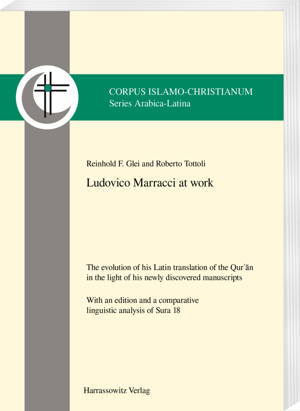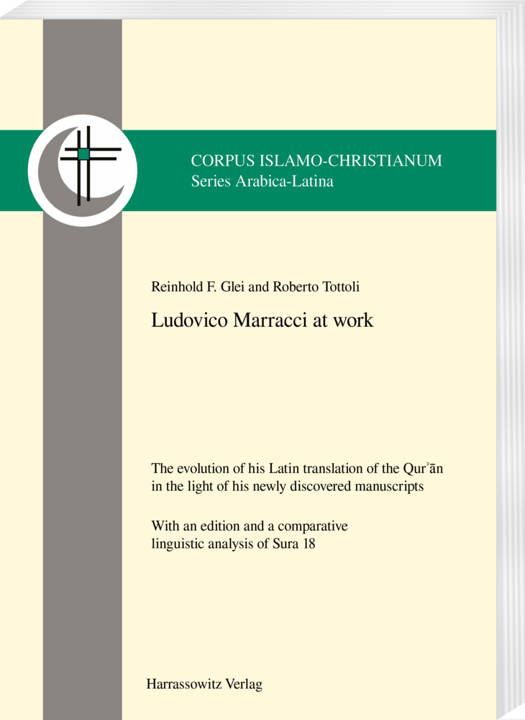
- Retrait gratuit dans votre magasin Club
- 7.000.000 titres dans notre catalogue
- Payer en toute sécurité
- Toujours un magasin près de chez vous
- Retrait gratuit dans votre magasin Club
- 7.000.0000 titres dans notre catalogue
- Payer en toute sécurité
- Toujours un magasin près de chez vous
Ludovico Marracci at Work
The Evolution of His Latin Translation of the Qur?an in the Light of His Newly Discovered Manuscripts. with an Edition and a Comparative Linguistic Analysis of Sura 18
Reinhold F Glei, Roberto Tottoli
115,45 €
+ 230 points
Description
In 2012, the manuscripts of the famous Oriental scholar Ludovico Marracci (1612-1700) were discovered in the library of the Ordine dei Chierici Regolari della Madre di Dio in Rome. Amounting to almost 10,000 pages, the 15 manuscripts include Marracci's work material, notes and significant information on his approach to transcribing, translating and commenting the Qur'an, and different versions of his translation. In fact, Marracci's work on the Qur'an solicits the interest of scholars of Islamic studies and the early history of this discipline as well as the interests of Latinists and historians of Early Modern Europe. As an example, one individual Sura of the Qur'an (no. 18, al-Kahf, "The Cave") has been chosen to show Marracci's methods of working. The book as a whole is the product of a shared discussion, but is also made up of parts carried out by each of the authors separately. The first part (I.1-4), describing the early steps in Marracci's work, is by Roberto Tottoli, who further examines the use of Qur'anic exegesis in order to analyse Marracci's use of Islamic sources and their reflections in the various layers of the translation. In the second part (II.1-5), Reinhold Glei discusses the questions connected to the Latin texts. In particular, he shows the development from a target language oriented to a source language oriented translation. To this purpose, editions of the various Latin versions of Sura 18 preserved in the manuscripts and a detailed linguistic commentary are included. A double Latin word index (on the first and final versions) is provided in the appendix, which also includes digital reproductions of the discussed parts of the manuscripts.
Spécifications
Parties prenantes
- Auteur(s) :
- Editeur:
Contenu
- Nombre de pages :
- 188
- Langue:
- Anglais
- Collection :
- Tome:
- n° 1
Caractéristiques
- EAN:
- 9783447105514
- Date de parution :
- 03-05-16
- Format:
- Livre relié
- Format numérique:
- Genaaid
- Dimensions :
- 175 mm x 244 mm
- Poids :
- 498 g

Les avis
Nous publions uniquement les avis qui respectent les conditions requises. Consultez nos conditions pour les avis.






